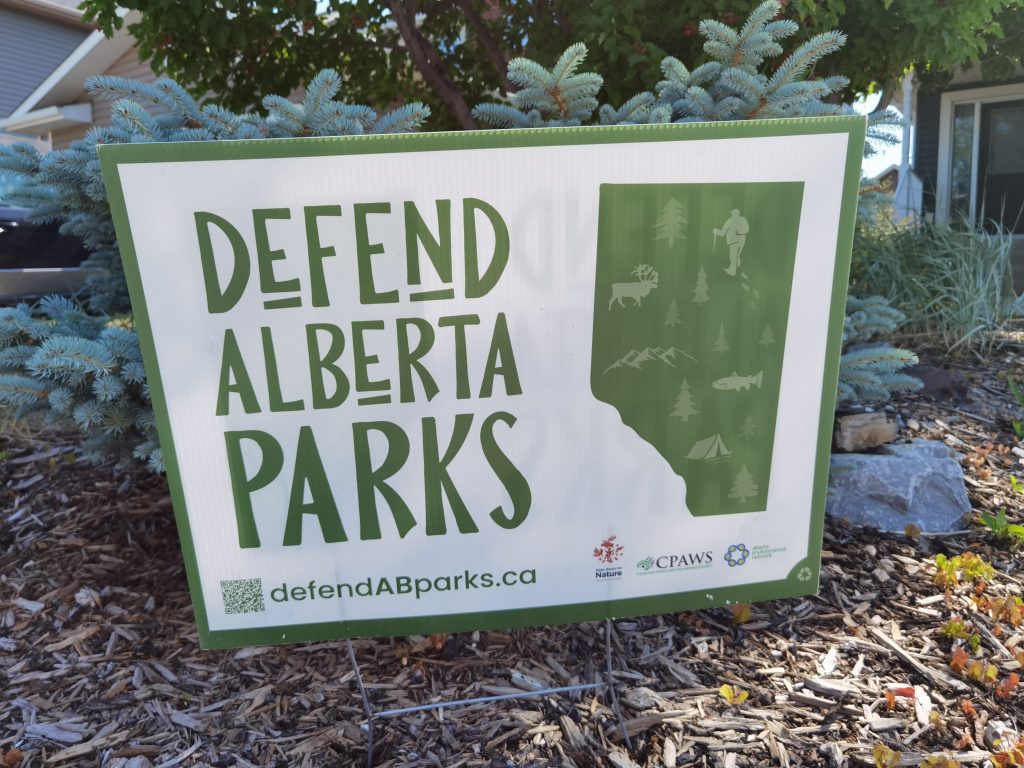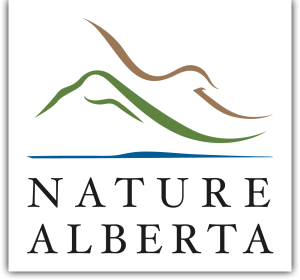Alberta Parks Face the Loss of Park Interpreters

Alberta Parks Face the Loss of Park Interpreters
By Kate Corrigan
I am privileged to live in a province that has many parks and protected areas that are easily accessible. Alberta’s provincial parks have provided me with a lifetime of memories shared amongst friends and family. They have provided me with access to nature, helping to rejuvenate me mentally, and they have allowed me to connect with like-minded people who value environmental protection and research. These parks have contributed immensely to my learning about the natural environment.
I would not have been able to learn about Alberta’s wildlife, landscapes, landforms, plants, birds, and history if it were not for park interpreters. I have fond childhood memories of sitting in the Kananaskis amphitheater and learning about species unique to K-Country. I remember learning about rocks and fossils found in the badlands of Drumheller when an interpreter was roving through our campground. I have many university friends who loved and valued their job as an interpreter to educate Albertans and many others about how special Alberta is in terms of breadth of geography, species, and history.
The key word is loved and valued. If you go to any Alberta Provincial Park this summer, prepare to be disappointed. The sunset guided hike you took, the furs and skulls you interacted with, the theatre program your children loved, the scavenger hunt your family did, or the people in funny costumes you saw, will all be gone. If you go to any provincial park this summer (with the exception of Dinosaur and Writing On Stone), there will be no interpreters giving programs to help educate you and your family on the area you are visiting.
Instead of an interpreter, a conservation officer (CO) will be in charge of law enforcement and interpretive programming. Last year, because of Covid, we saw how overrun the parks were. Now staff are being tasked with duties they did not sign up for and the front-line interpreters no longer have jobs. For a government that is so focused on job creation, they are eliminating jobs within parks that enhance visitors’ experiences and increases their satisfaction while visiting. I guess “job creation” is only applicable if we work in the oil and gas industry.
In a research course I did in the fall of 2020, I interviewed park interpretation and environmental education managers throughout the province. These managers indicated that interpretation was a very positive activity in the dark times of COVID. Though parks were being overrun with visitors, nearly everyone who went to a program had something great to say about their experience. One manager indicated that the interpretive programming allowed visitors to be focused on something positive rather than the pandemic. If Alberta Parks eliminates all programs and interpreters, fewer people will know how to interact with wildlife and how to respect trails and campsites. They will also be less aware of the natural environment and fragile ecosystems around them.
Through the Defend Alberta Parks campaign we prevented parks from being sold off. Now we need to defend the educational experiences that are only found in our provincial parks. The budget cuts that parks are facing this year are not being highlighted in the news like they should be. I encourage you to share this post, write to your local MLA, and to let people who value environmental education know about how our parks are being negatively impacted.
Download this template to help you get started on a letter to Minister Nixon and/or your local MLA.
Kate Corrigan is a 4th year Environmental Studies and Outdoor Education student at the University of Alberta Augustana Campus.
